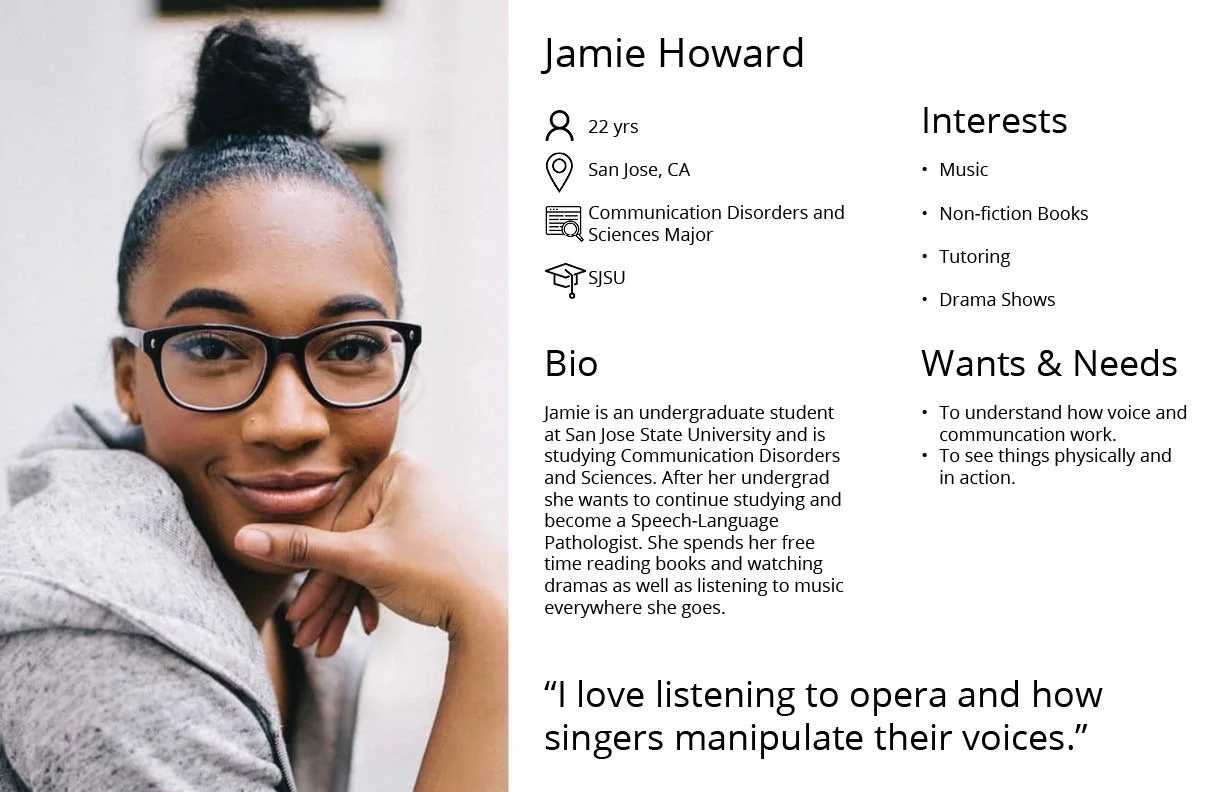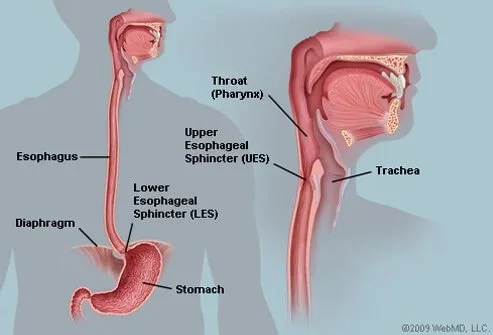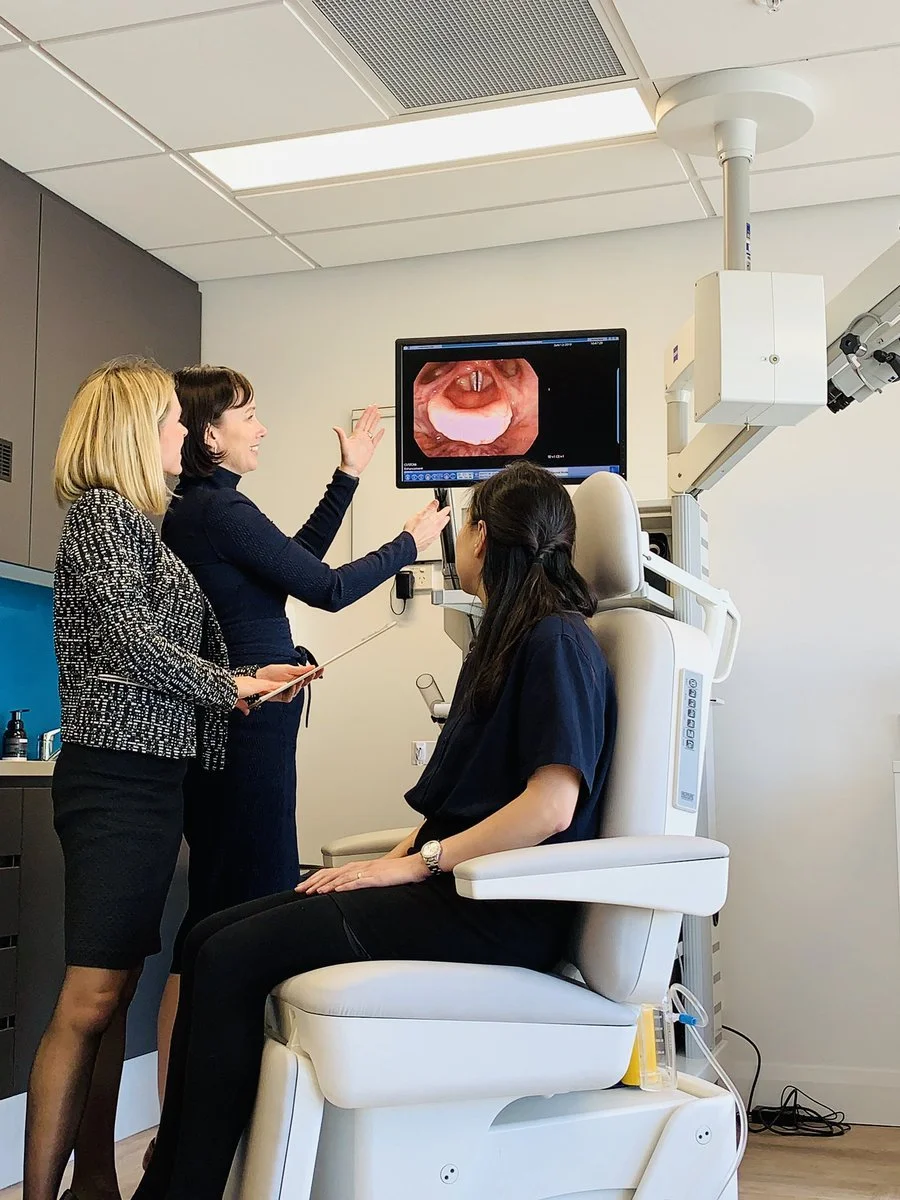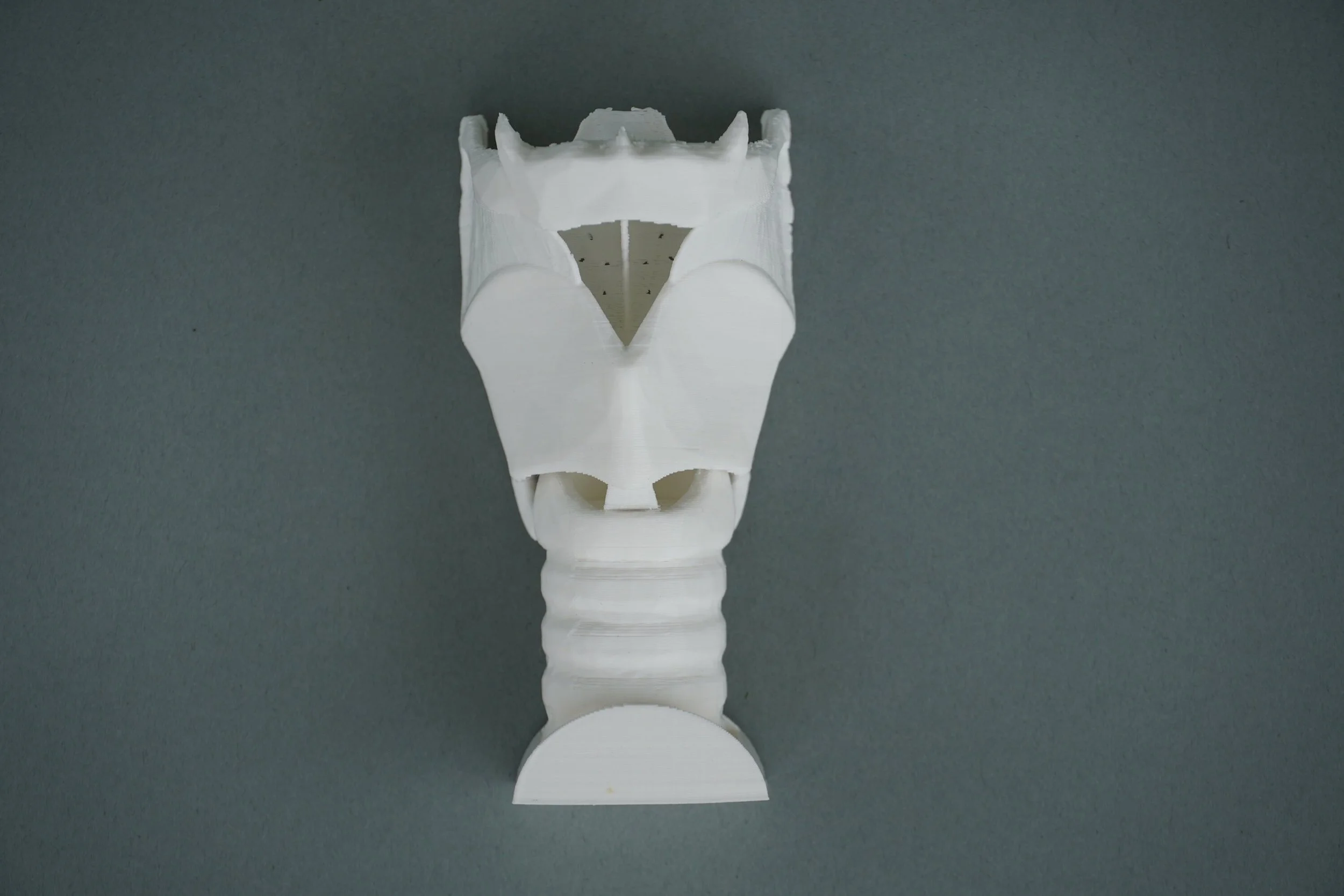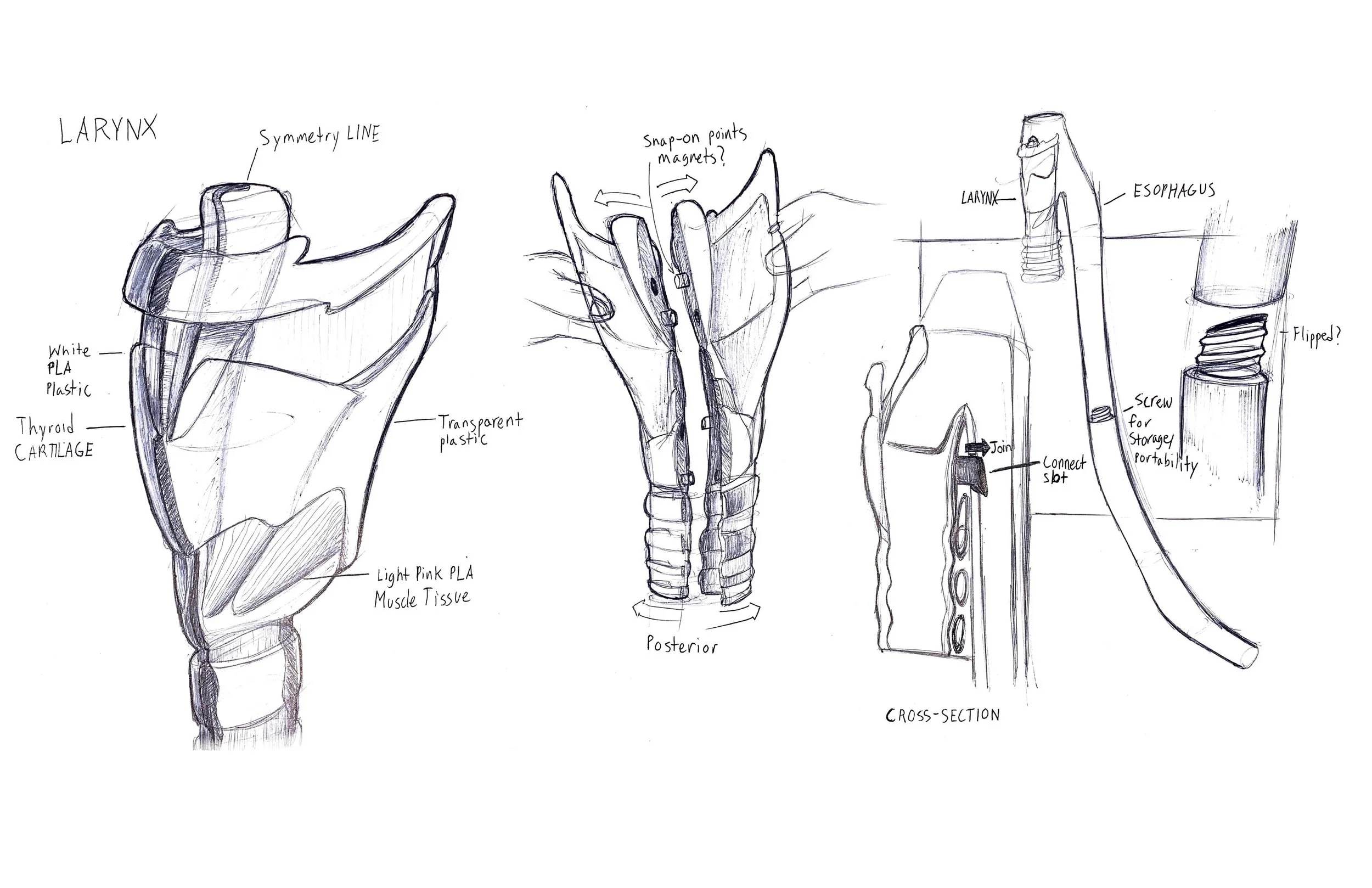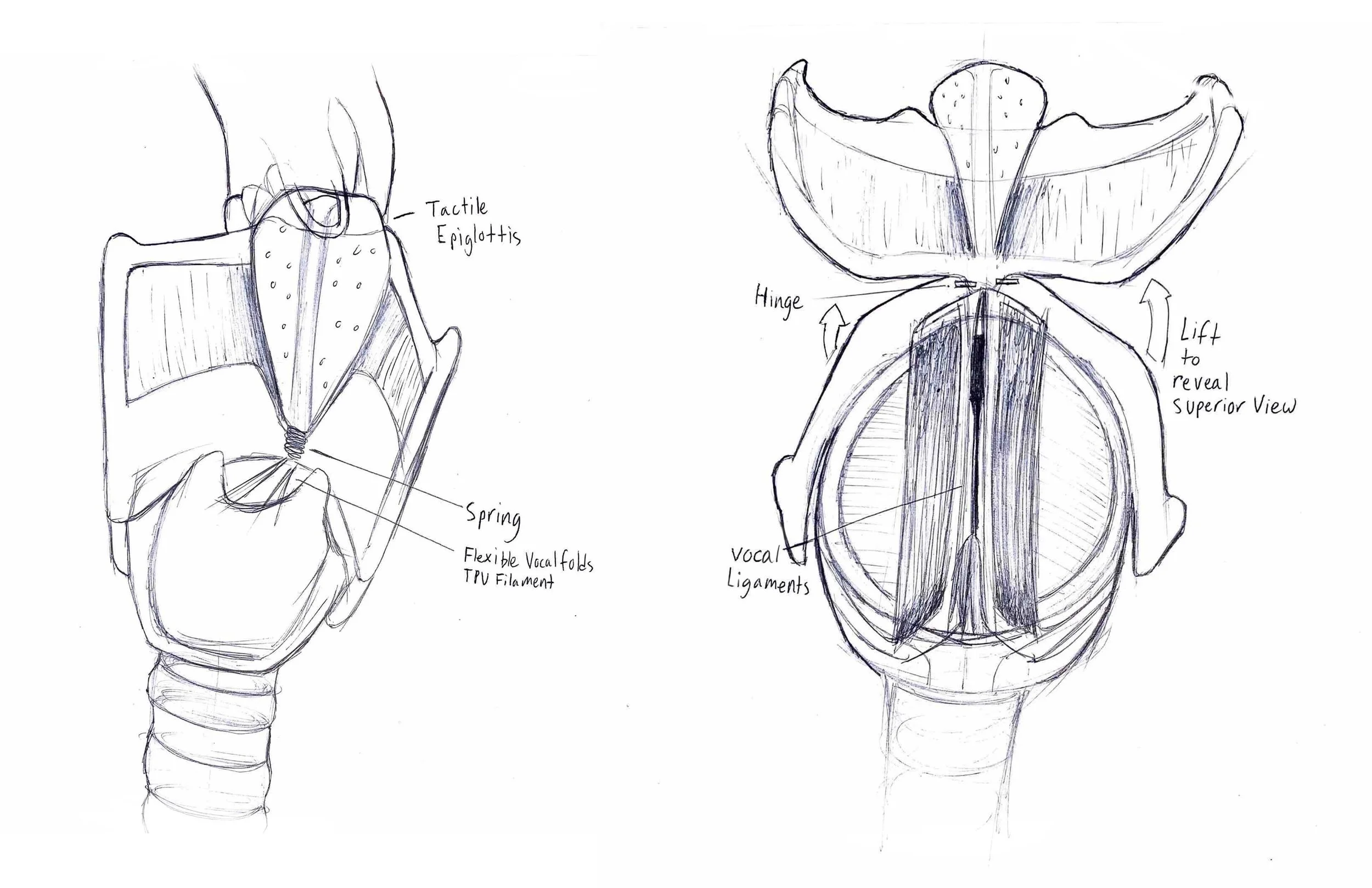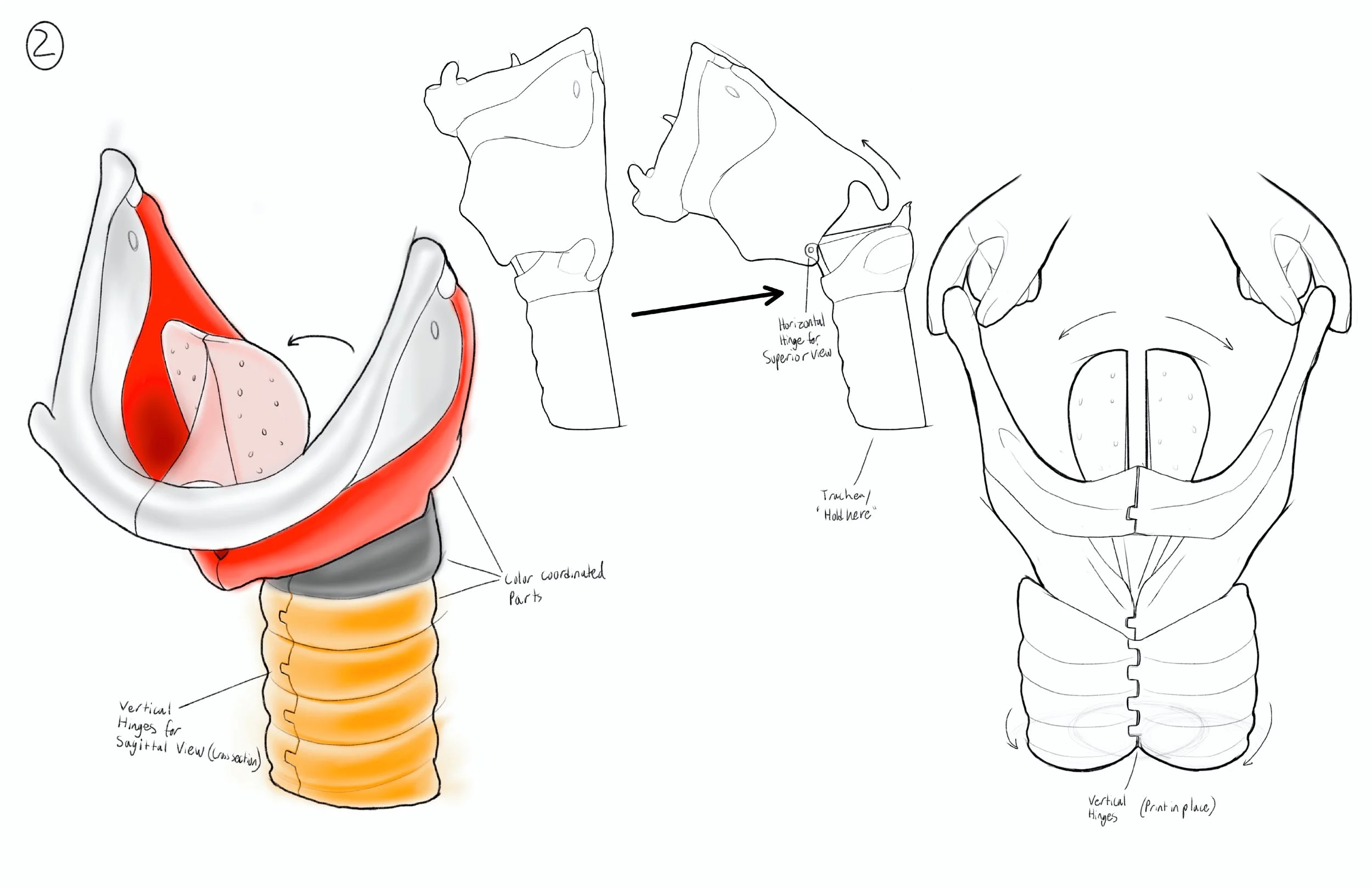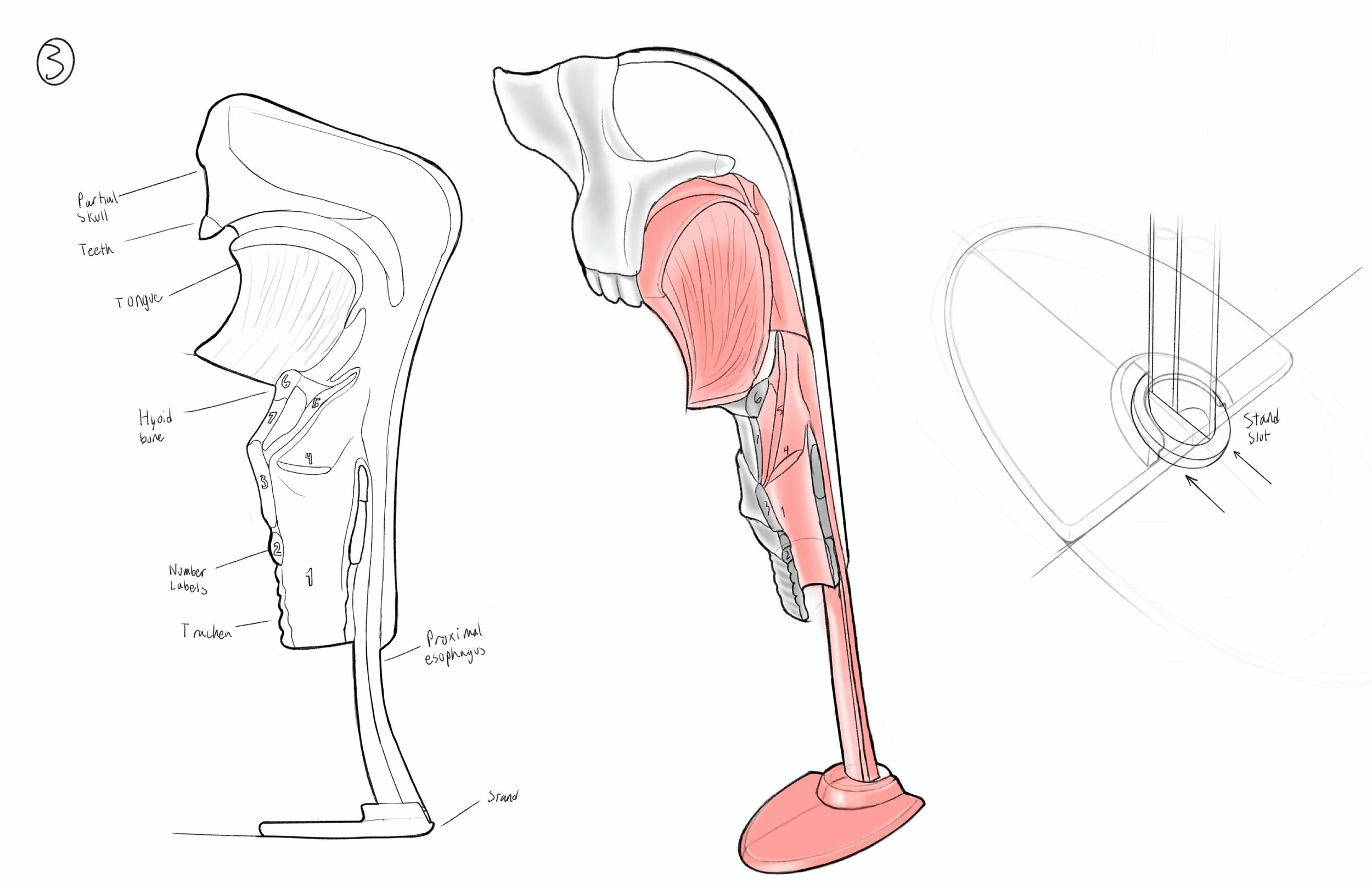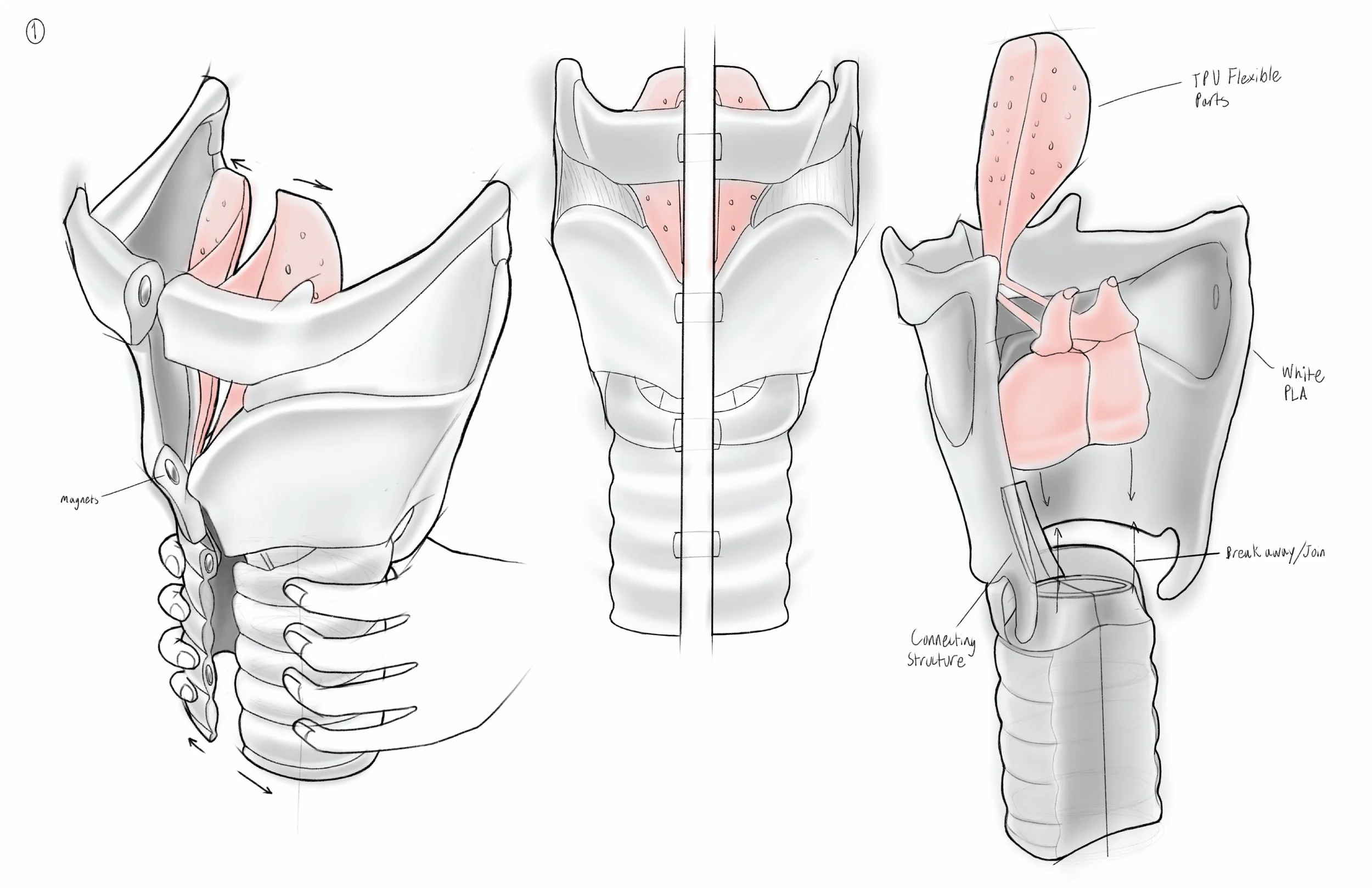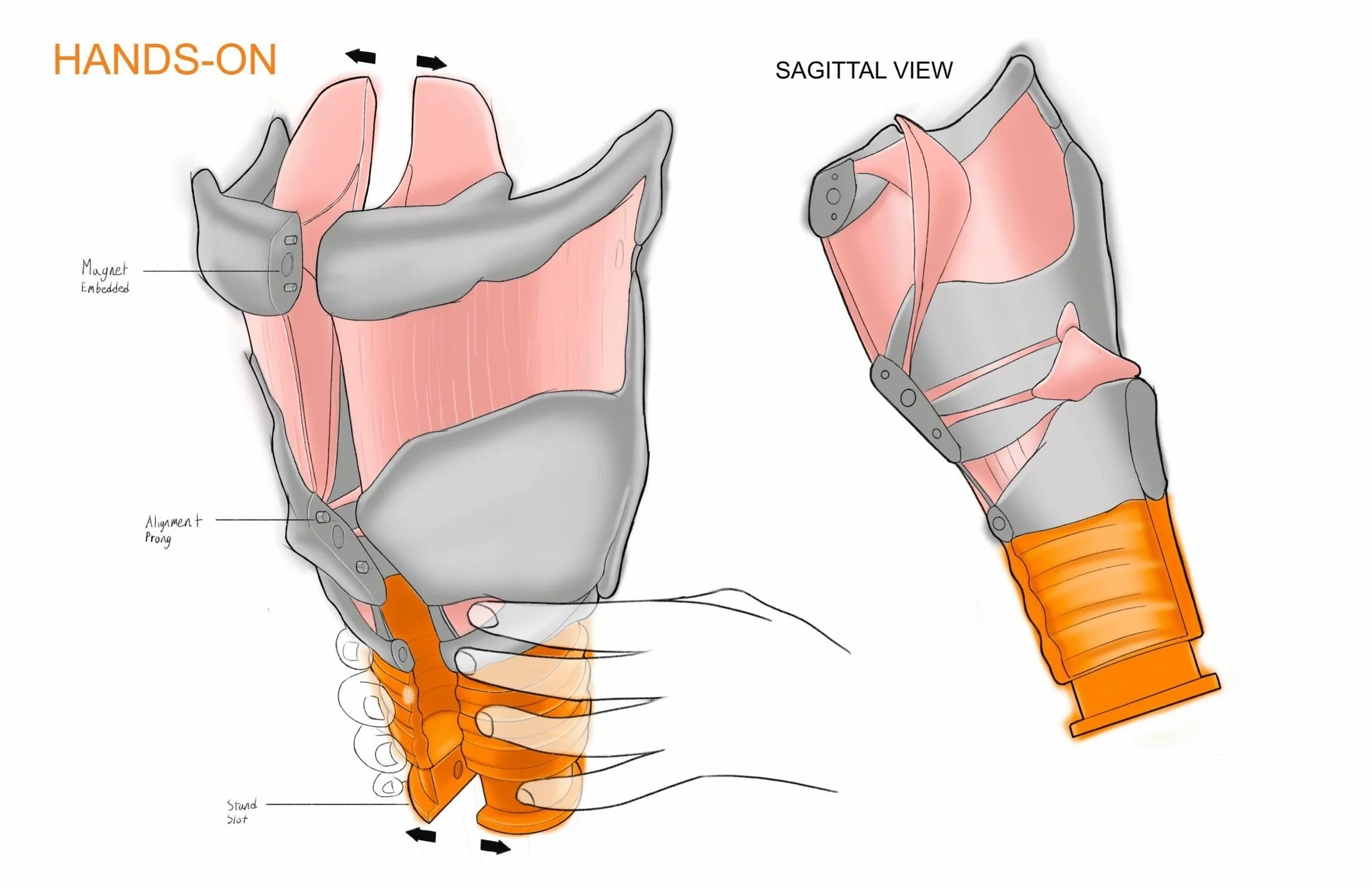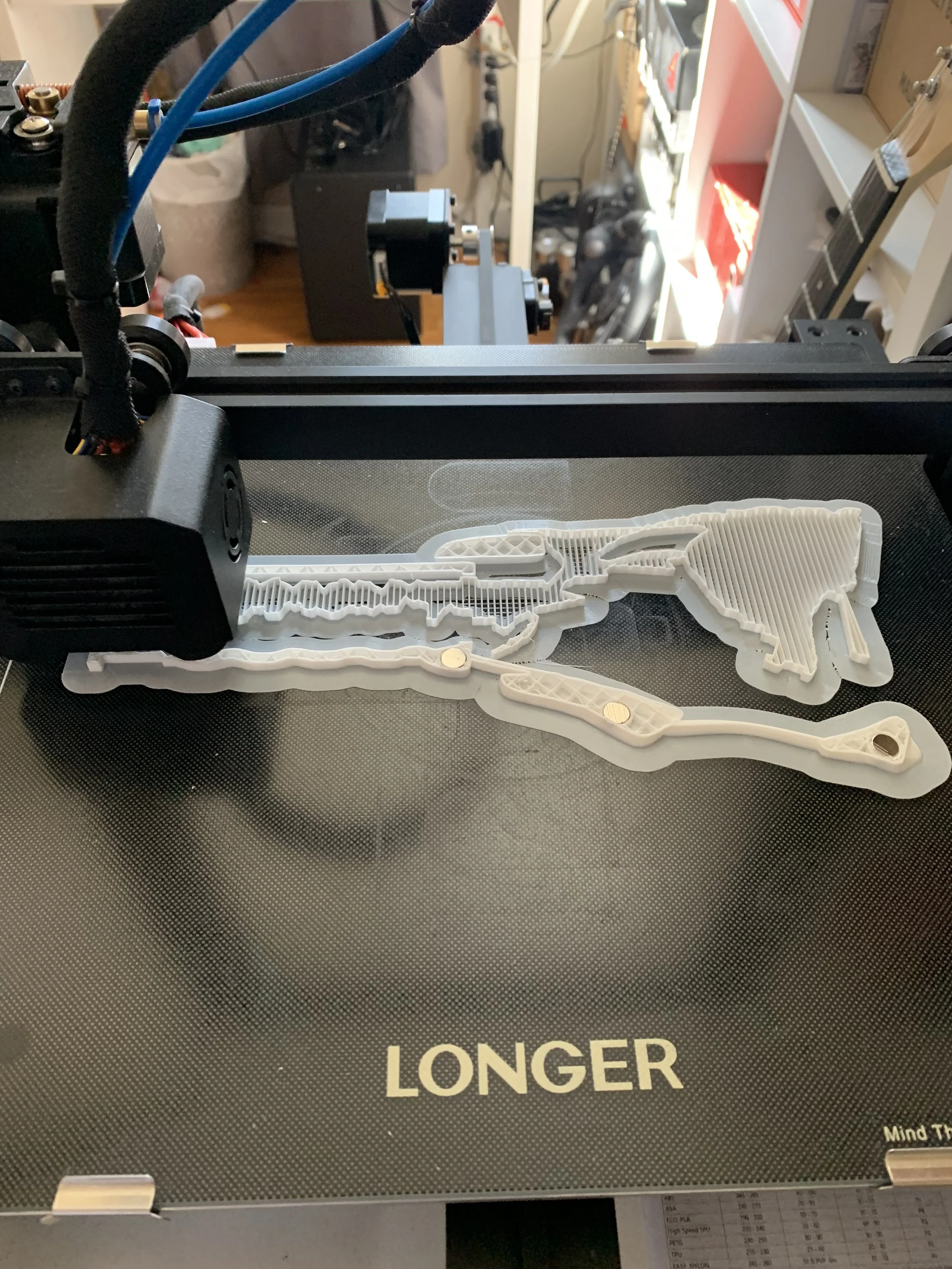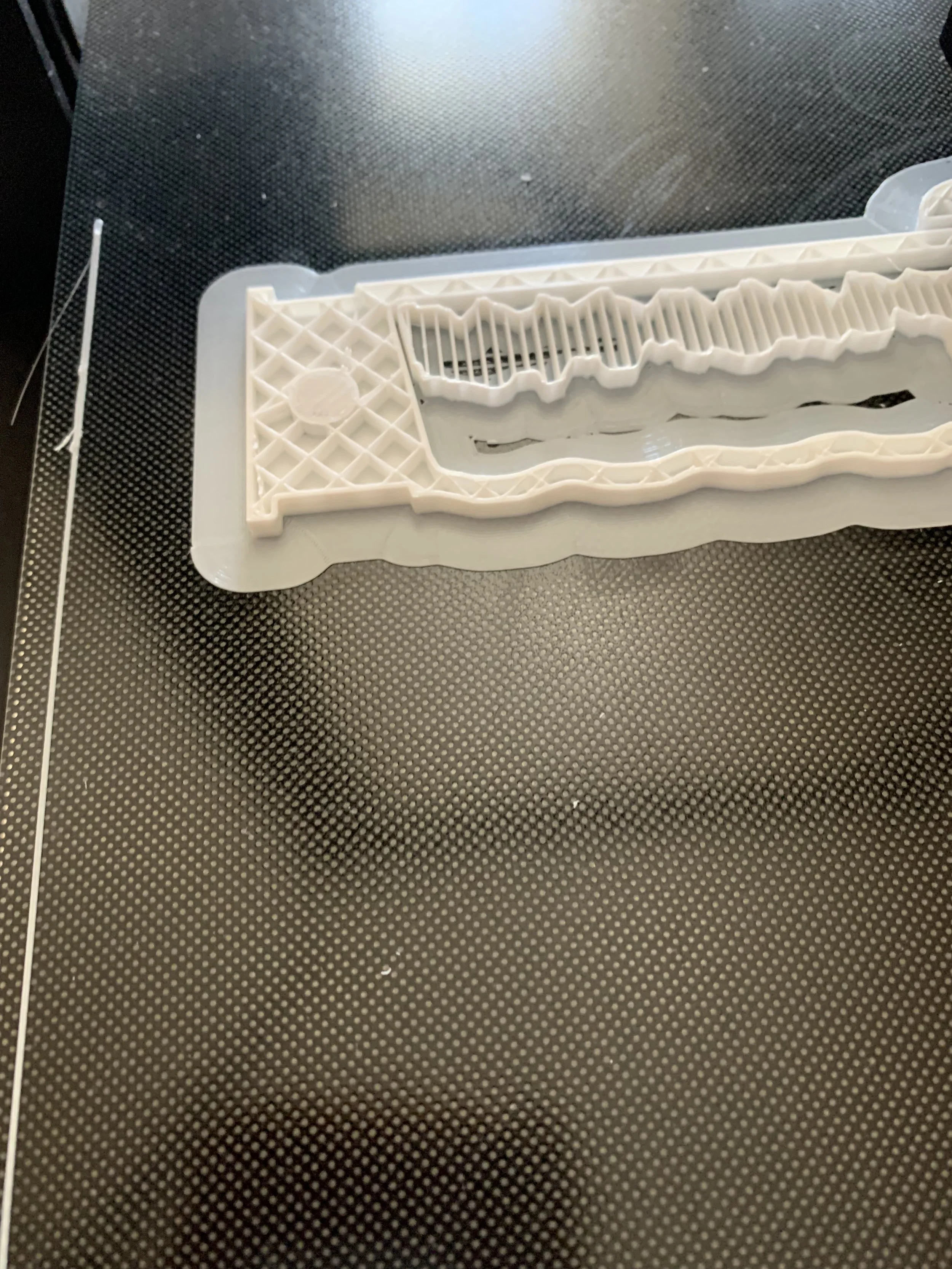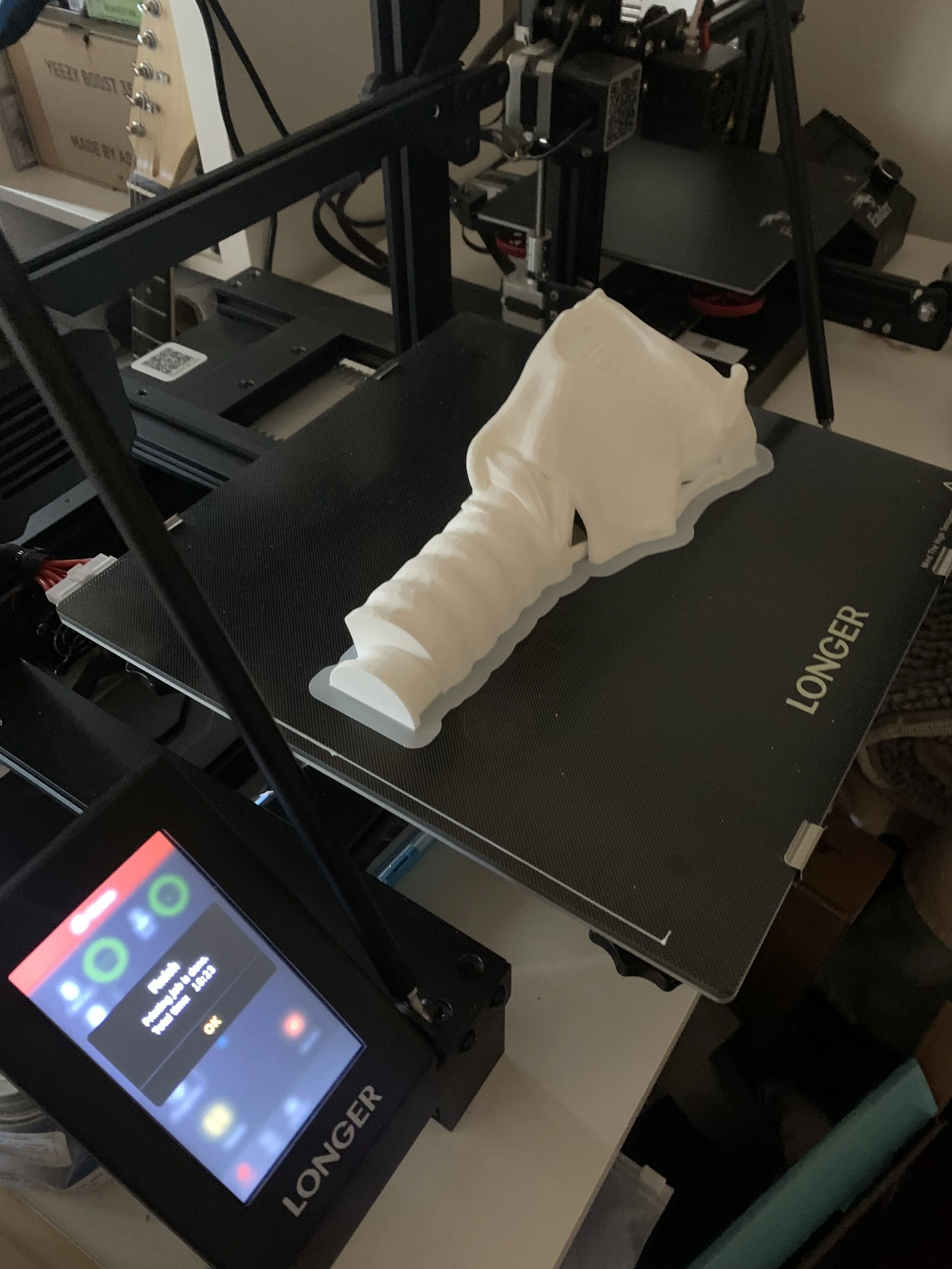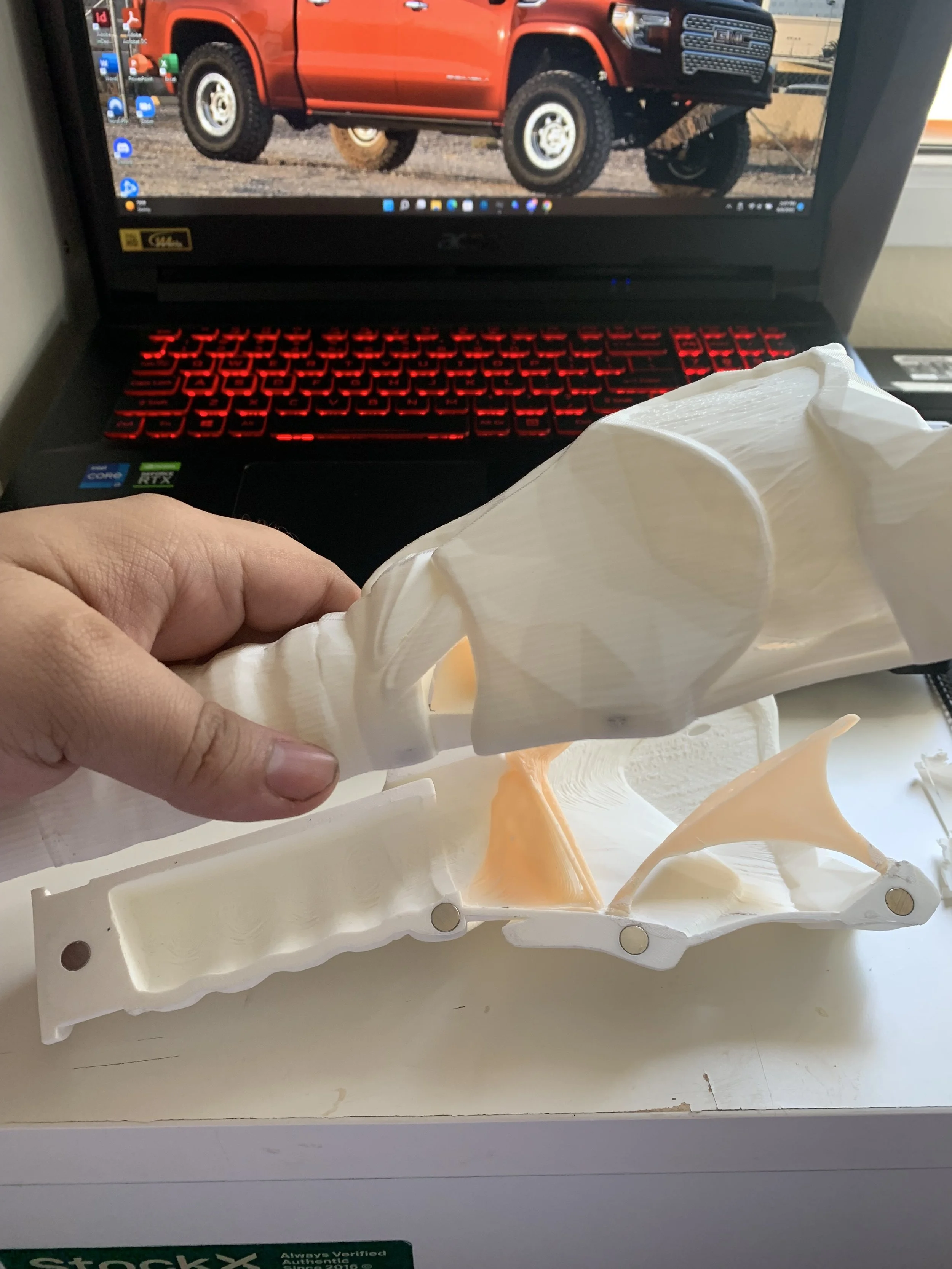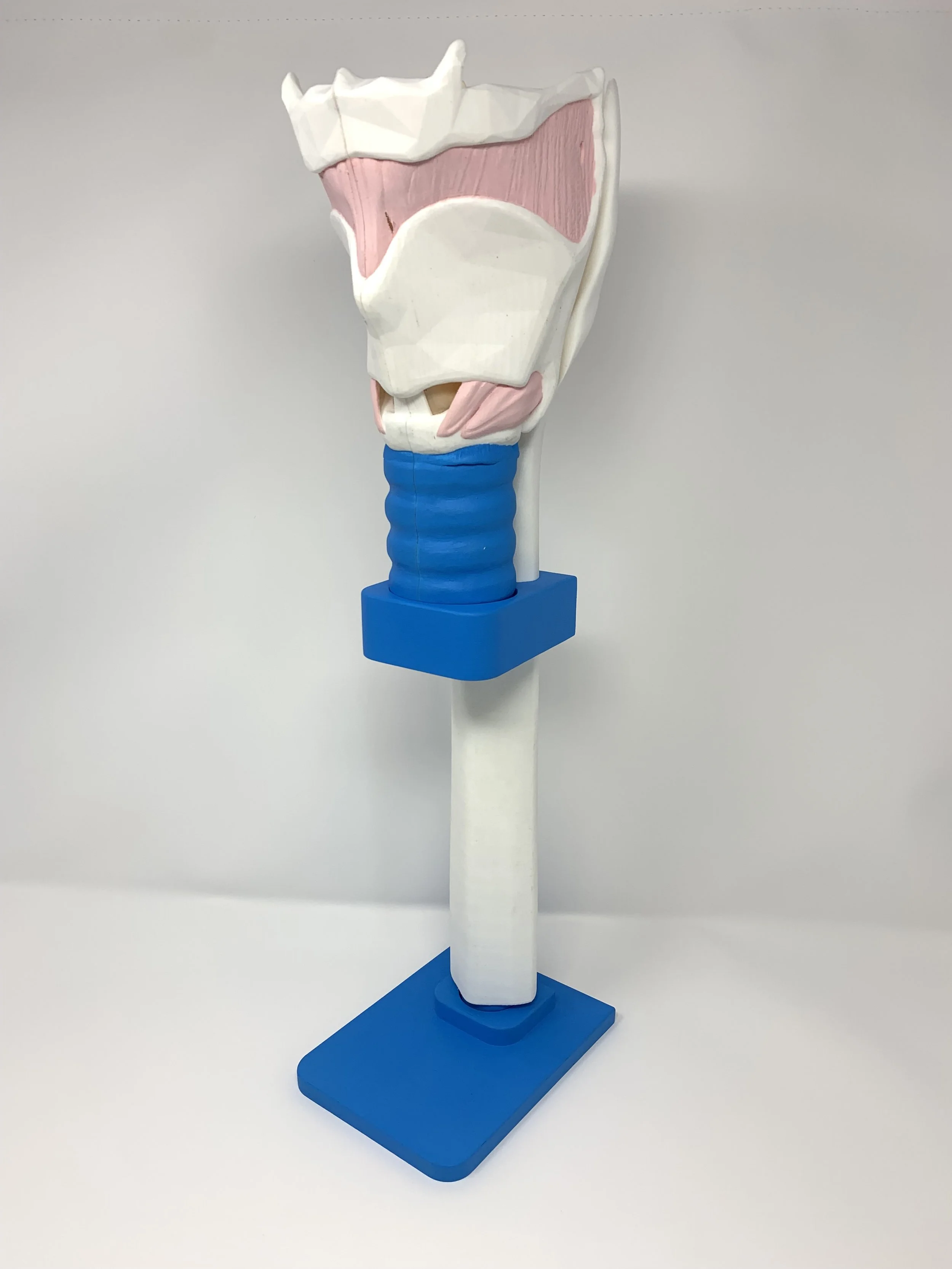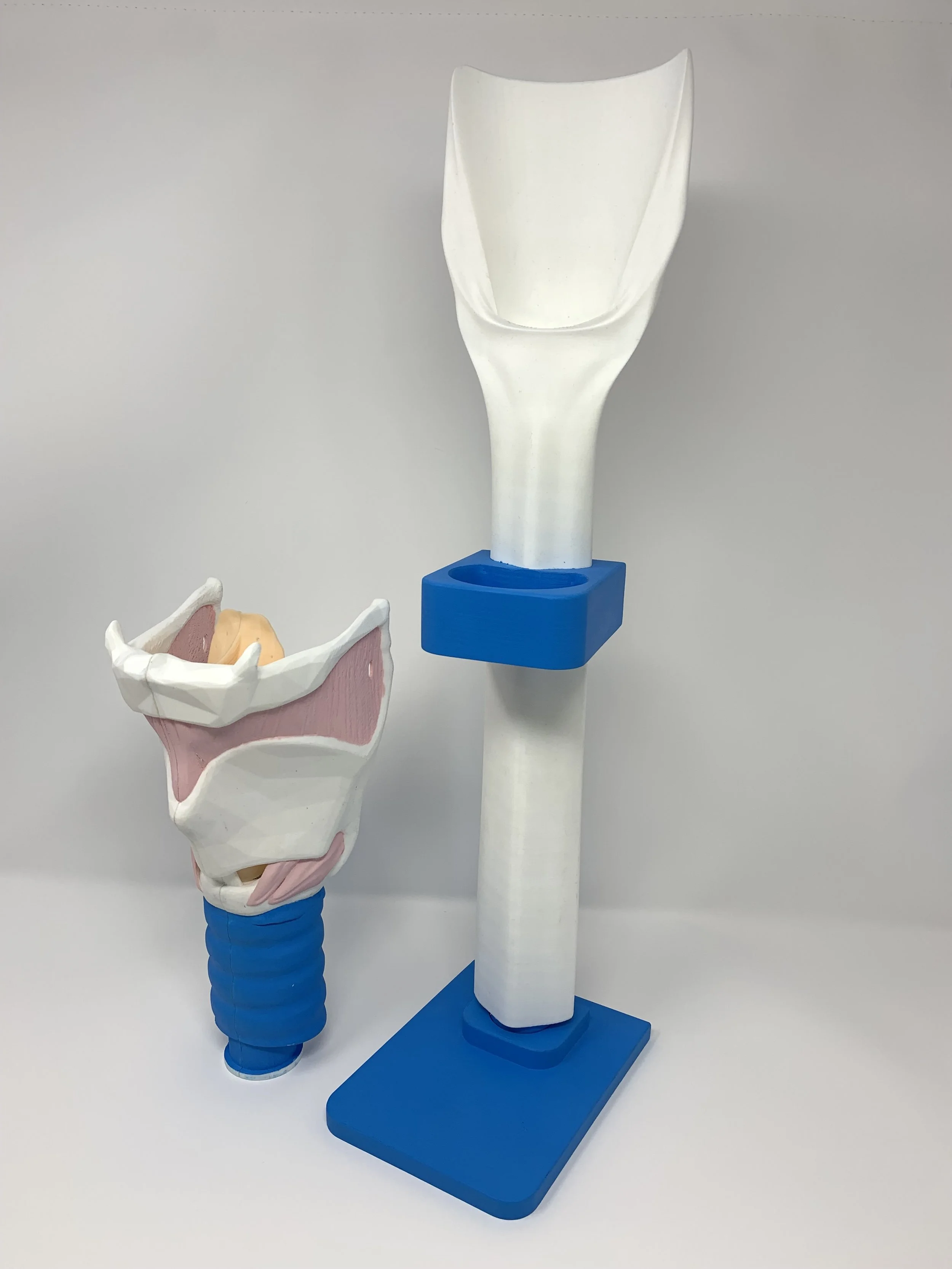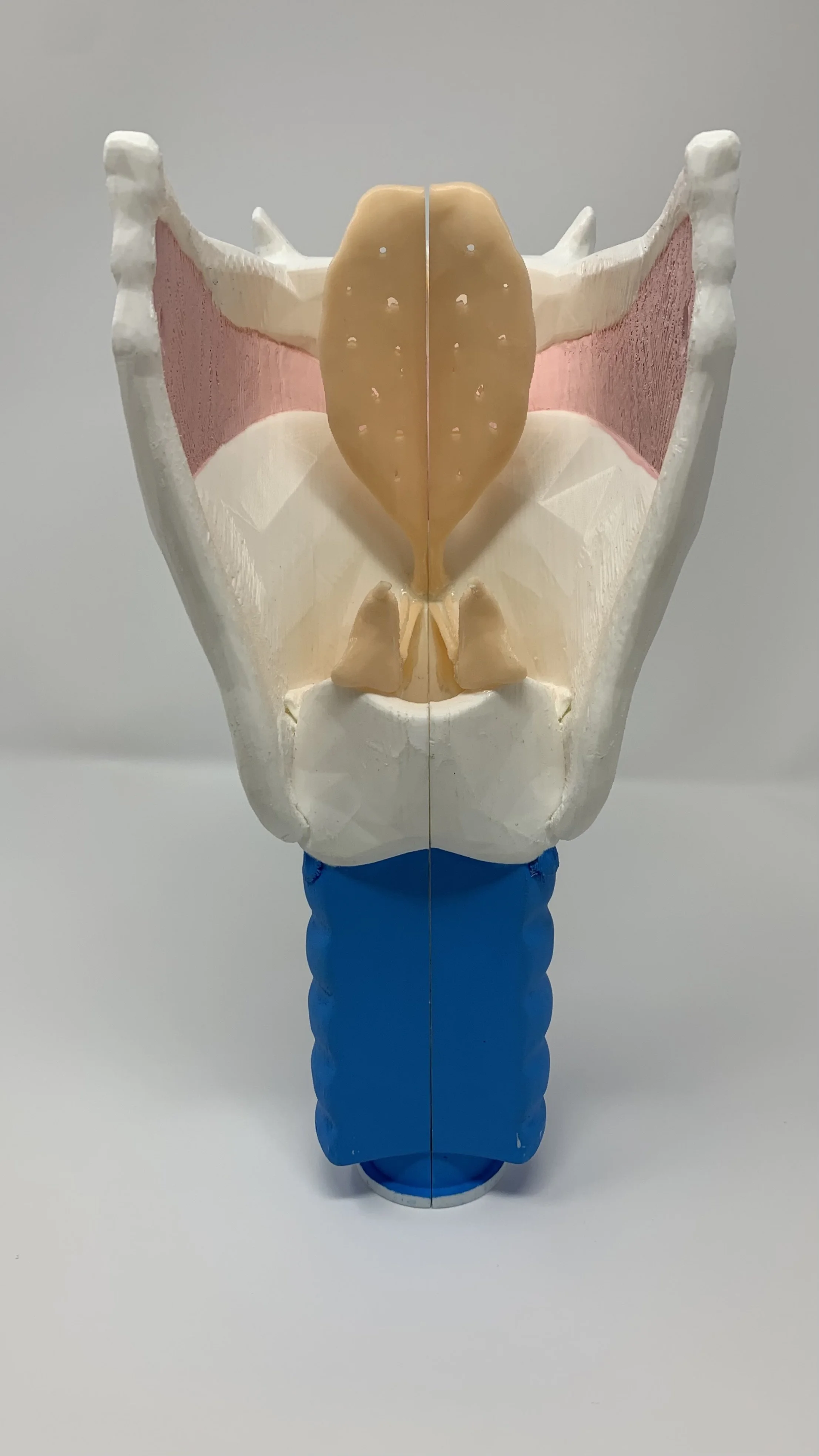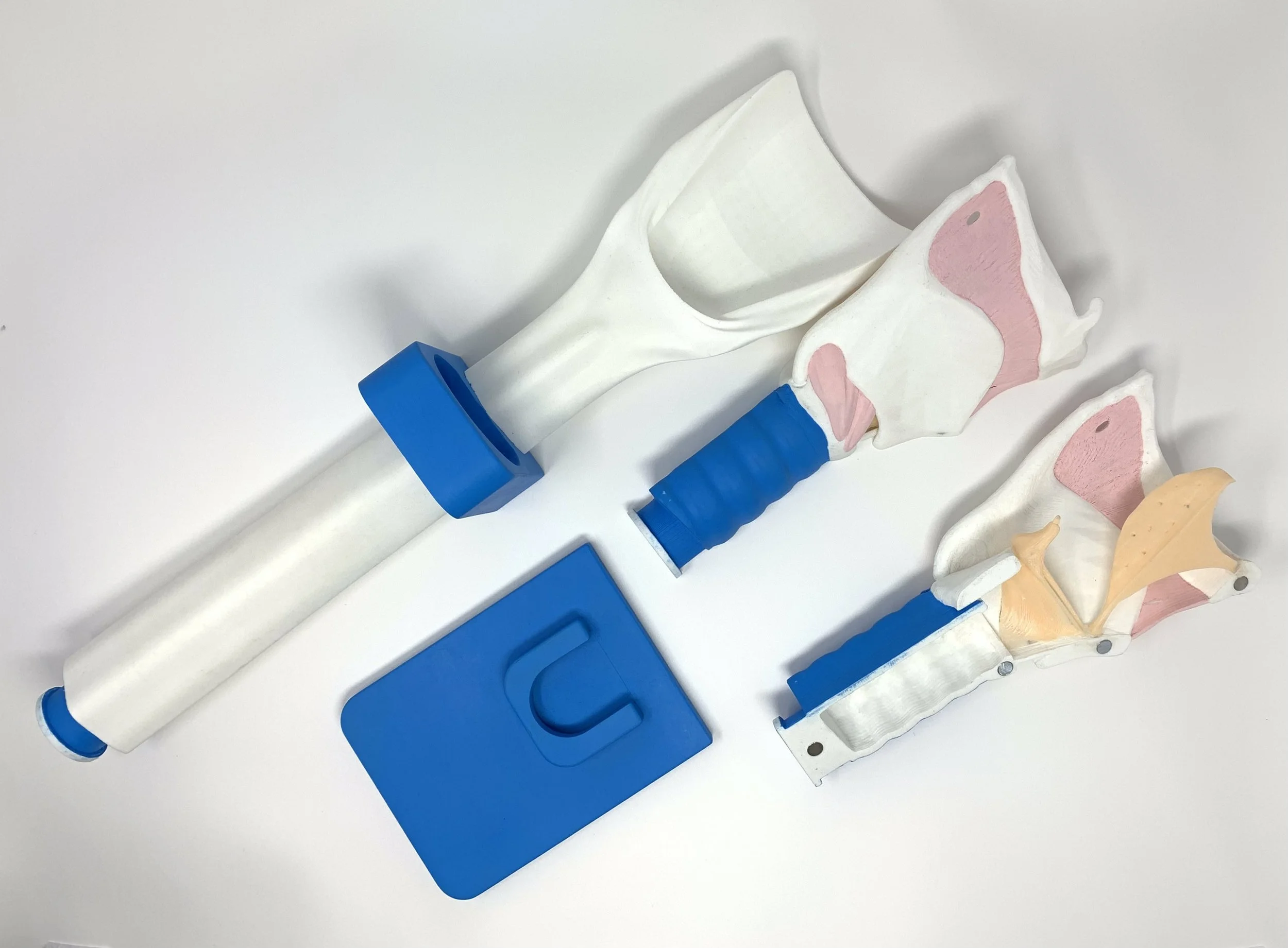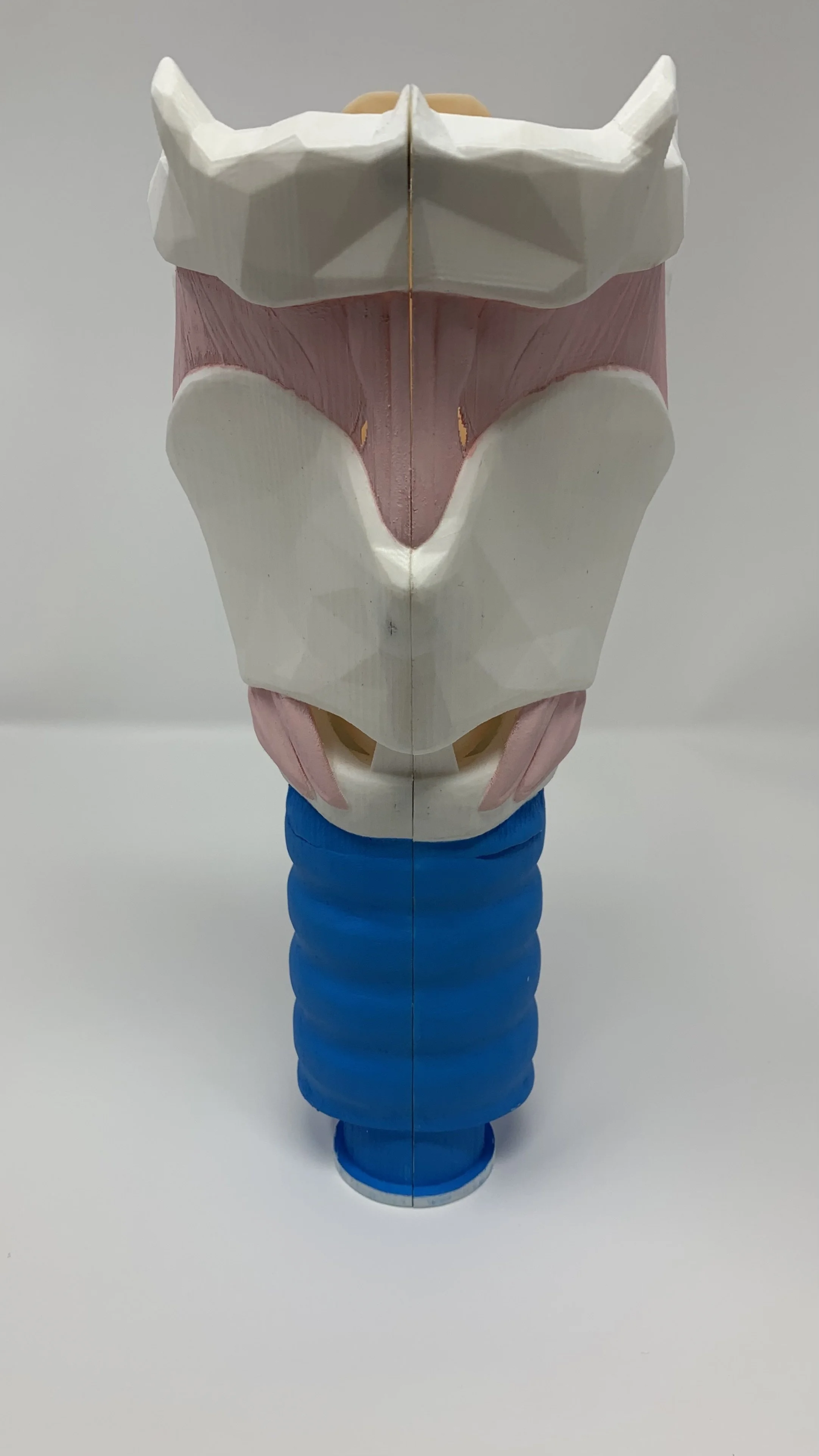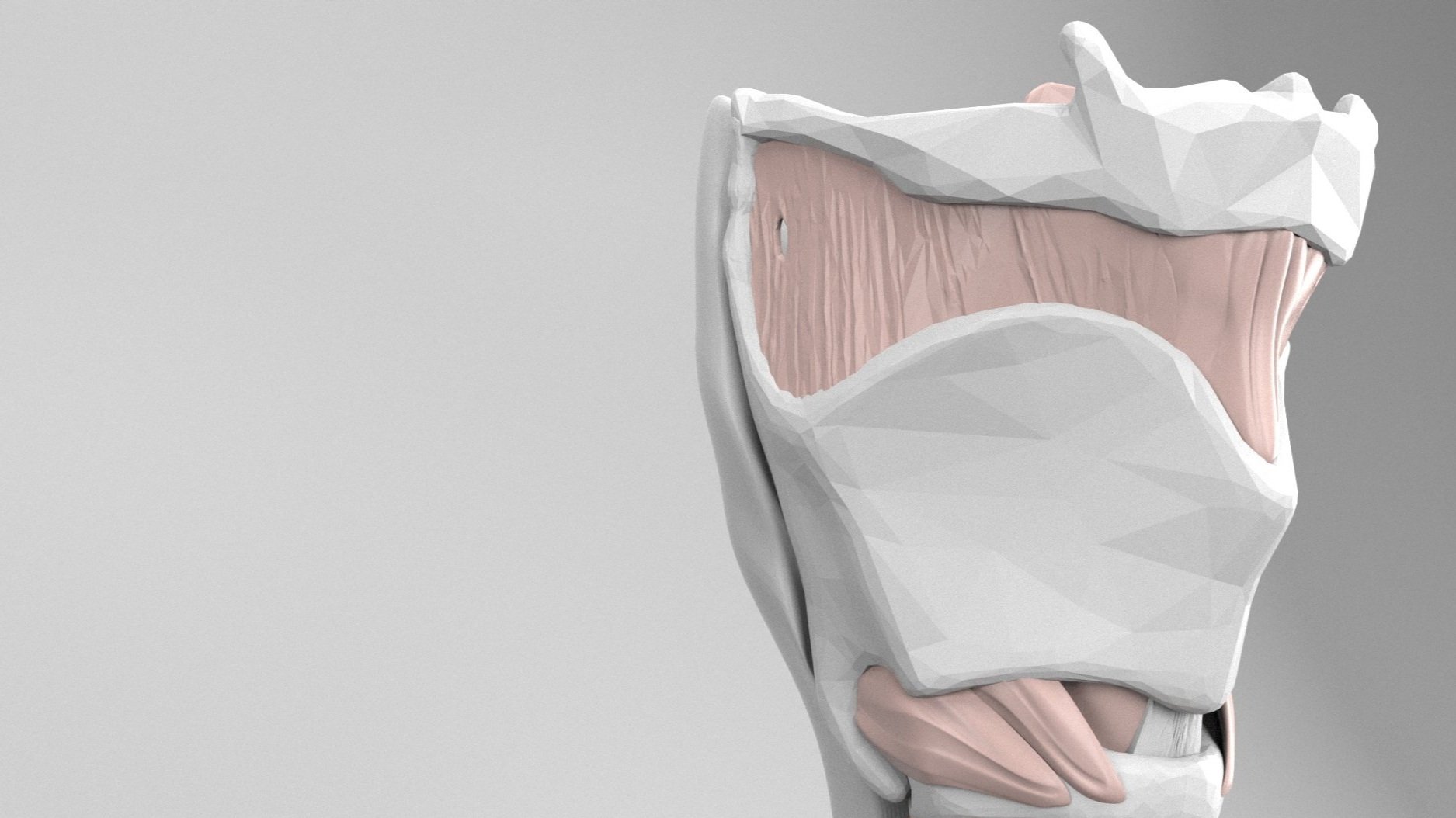
CDS X ID
Larynx & Esophagus Educational Model
Summer 2022
Brief
Design a tactile educational tool for CDS students and clients who have communication and swallowing disabilities in the SJSU community Clinics
Project Overview
Collaboration between Communicative Disorders and Sciences (CDS) and Industrial Design (ID) departments of San Jose State University
How can we expand the way people learn about their vocal anatomy?
Problem Statement
Speech and swallowing are interconnected actions that take place in Human body and are affected by a number of different anatomical structures. The Larynx and Esophagus are some of anatomical structures that play a crucial role in speech and swallowing. That is why these parts are taught to students pursuing careers in Speech Pathology and clients who might be having trouble with their voice and/or swallowing.
For many students and clients, auditory and visual learning techniques might not be enough to help them understand what they are seeing or what they are experiencing in their vocal anatomy. This is where students and clients can benefit from Kinesthetic learning to increase educational success. These Kinesthetic learning models are afforded by the innovations in 3D-Printing technology.
Designer (Me)
Responsibilities:
Explore kinesthetic model concepts of the Larynx and Esophagus
Establish production expectations
Research the anatomical requirements of the models
Conduct weekly meetings with CDS graduate students
Receive input and feedback from CDS team to progress towards the final design
3D print the final prototype and usable model
PROJECT ROLES
CDS Team (Graduate CDS Students)
Responsibilities:
Advise designer on the anatomical requirements of the model
Input feedback about the concepts and ideas for the model
Evaluate the ideas
Provide anatomical information as necessary
Advise the final direction of the design
USER PERSONAS
ANATOMY OF LARYNX & ESOPHAGUS
Larynx A tube-like structure that acts as a passage way to the respiratory system and contains components that allow air to go to the lungs and vocal cords that are necessary for speech.
Location Middle of the neck between the 4th and 6th cervical vertebrae.
Size The approximate size of an adult larynx is about 2 inches. Women have a smaller larynx than men.
Primary Functions Breathing, voice, Prevention of unwanted particles from entering the respiratory system (Cleveland Clinic)
Esophagus A muscular tube that allows food and liquid to go from the pharynx (throat) to the stomach.
Location Behind the trachea (windpipe), in front of the spine, and at the center of the chest (mediastinum).
Size The approximate size of an adult esophagus is about 10 to 13 inches long and about 3 quarters of an inch thick at the smallest point.
Primary Functions Transportation of food from the throat to the stomach. (Cleveland Clinic)
UNDERSTANDING THE LARYNX & ESOPHAGUS
Larynx A tube-like structure that acts as a passage way to the respiratory system and contains anatomy that allow air to go to the lungs and vocal cords that are necessary for speech.
Primary Functions Breathing, voice, Prevention of unwanted particles from entering the respiratory system (Cleveland Clinic)
Esophagus A muscular tube that allows food and liquid to go from the pharynx (throat) to the stomach.
Primary Functions Transportation of food from the throat to the stomach. (Cleveland Clinic)
CONSTRAINTS
Priority:
Users Priority on CDS students (undergrad & grad) learning anatomy, professors, Voice Clinicians, and adult patients.
Age Range Most common age of use will be between 18-26 years old.
Anatomical Representation The anatomical model must represent an adult Larynx and Esophagus.
Place of use Anatomy classes, hospitals (acute care), & voice clinics.
Purpose Educational
3D Printing:
Printing Methods
FDM Printing - cost effective, quick turn-around time, limited print quality
SLA Printing - higher cost, longer print time, more heat resistance, durability, quality
FDM Printing Materials
PLA
PETG (Transparent)
TPU (Flexible)
CONCEPT IDEATION
REFINEMENT
DESIGN DIRECTION
PRINTING PROCESS
Larynx (Right Half) Print
Embed Magnets
Larynx (Right Half) Print
2. Resume Print
Larynx (Right Half) Print
3. Complete Print
Larynx (Both Halves)
4. Join and Test Strength

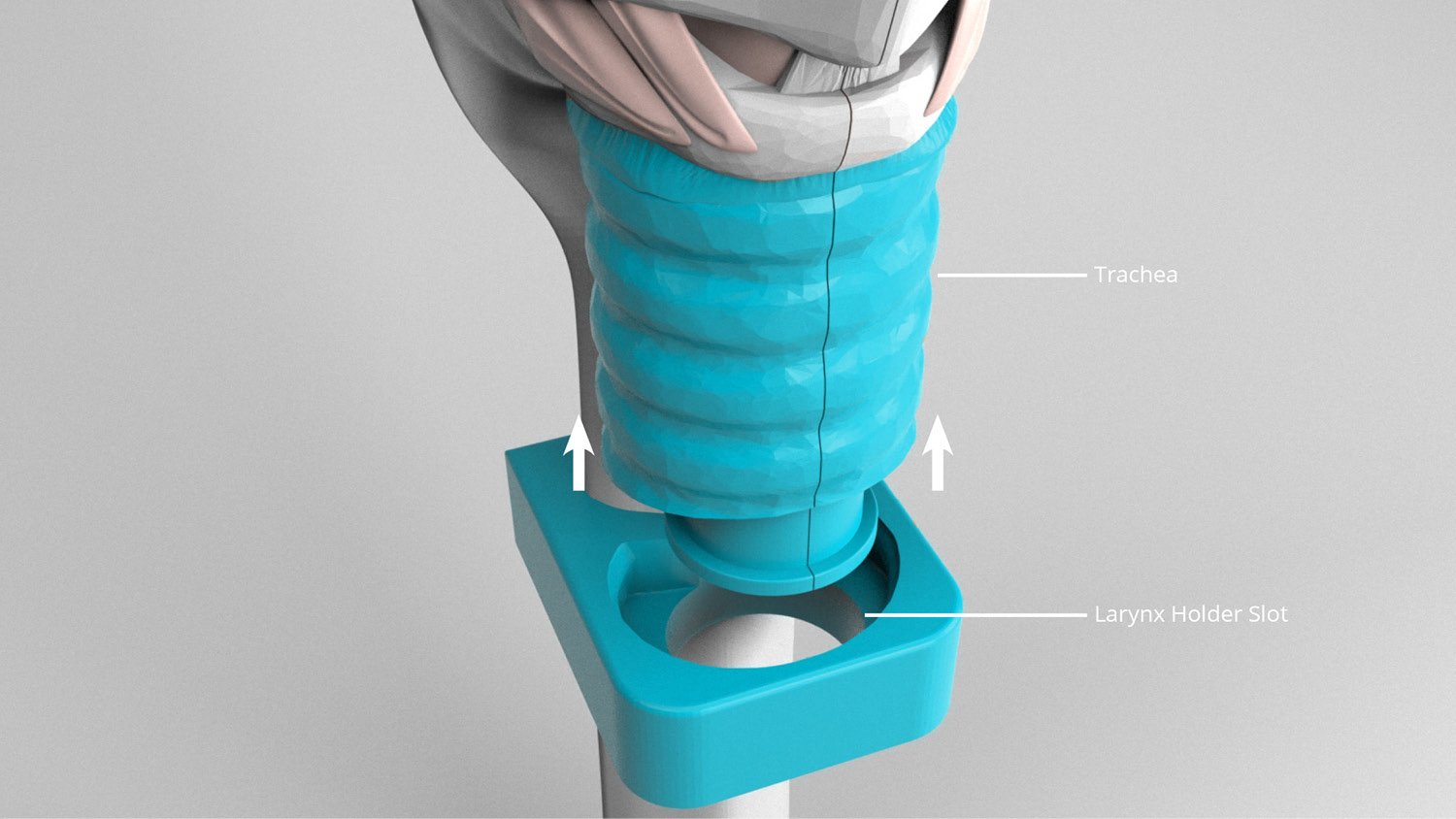
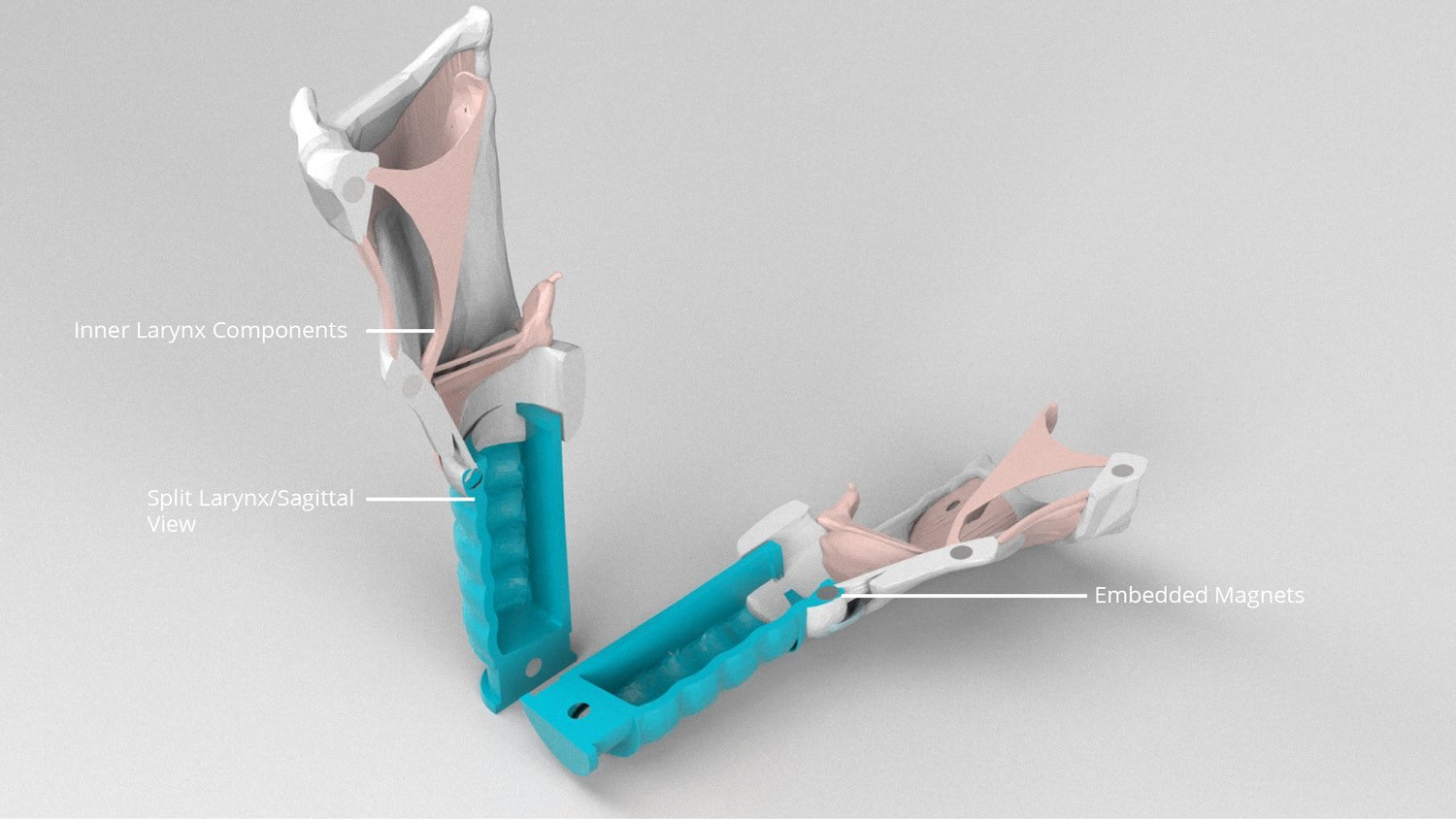

Larynx & Esophagus
Kinesthetic Model
CDS x ID Project
-
PLA Plastic (3D Printed)
Embedded Neodymium Magnets (2x8mm)
Cyanoacrylate
-
Larynx
2-part Larynx
Magnetic Connection
Accurate view of inner anatomy
Esophagus
Sturdy display stand
Detachable for storage


